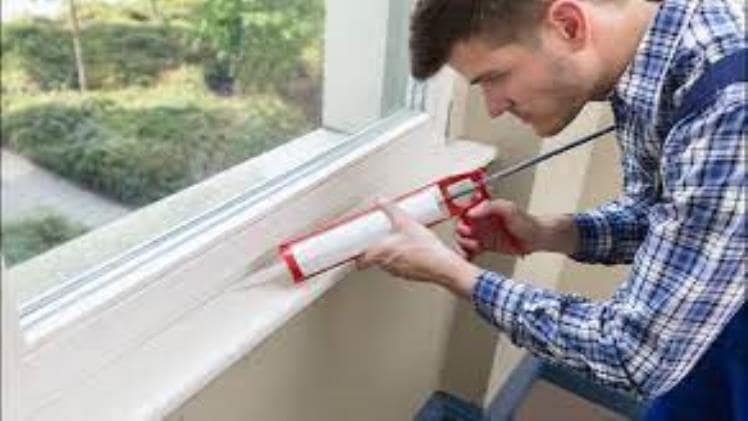In order to build and maintain a home, owners typically invest a lot of money, time, and effort. However, one of the most frequent issues that afflict homeowners is moisture in the walls. The external walls of your home are inevitably going to deteriorate with time due to constant exposure to harsh weather, resulting in cracks in numerous locations. Your home’s interior walls will become damp and frail as a result of these fissures, which will allow moisture and precipitation to enter. In the worst-case scenario, major property damage from dampness or water leaks can completely destroy the curb appeal and value of your home. This is why waterproofing your home is crucial. So if you’ve noticed any wet spots around your home and are looking for quick fixes, you’ve come to the right spot. This blog post will go through some practical strategies for preventing water seepage in walls and waterproofing your home.
Waterproofing your home is an essential step in ensuring its longevity and structural integrity. However, it’s also important to consider other aspects of construction and maintenance that contribute to the overall durability and appearance of your property. For instance, commercial plastering services can play a significant role in creating a professional and polished look for your building. Plastering National offers top-notch commercial plastering solutions, ensuring that your property not only remains protected from water damage but also maintains a high-quality finish. By investing in the right services, you can safeguard your property and enhance its aesthetic appeal.
What Causes Water Seepage in Walls?
Unimaginable damage can be done to your home by water seepage on walls. In addition to having a bad appearance, seepage damages the paints and plasters on the inside walls. Additionally, it causes moist walls, floors, and dripping ceilings. Therefore, it won’t be a surprise if you frequently develop a cold while residing in such a property.
Due to underlying construction problems including the use of subpar raw materials or inadequate attention to waterproofing measures throughout the construction process, water seepage through walls may develop. Additionally, prolonged exposure to harsh weather and particularly persistent downpours, can cause cracks in the exterior walls of buildings and homes. The interior walls of houses may eventually become damp if moisture and water seepage from these fractures are not promptly fixed.
These are the most common causes behind water seepage through walls:
- Leaks coming from sewage lines, water tanks, bathrooms, or kitchens
- Internal plumbing issues
- Leaks in the water supply lines, sanitary fittings, and drain pipes
- Water accumulating on roofs as a result of inadequate outlets
- In buildings where the exterior walls are not plastered
- Bathroom tile gaps allow water to seep through.
- Groundwater can rise above the surface and harm walls and flooring.
Easy Ways to Prevent Water Seepage in Walls
Here are the effective ways of blocking water seepage in your walls:
- Always apply high-quality paint on walls.
- Get the cracked walls fixed at the earliest.
- Reduce indoor humidity as much as you can.
- Limit the steam produced in the kitchen and the bathroom.
- Maintain favorable temperature levels in the house.
- Call waterproofing professionals for help if you come across a major repair.
1. Always Apply High-Quality Paint on Walls
A wall with poor-quality paint has a tendency to let moisture soak through the concrete, which can harm both the interior and exterior walls. This could cause your property’s overall structure to deteriorate and make it look unpleasant until the next painting job. Thus it is advised to use high-quality paints that are readily accessible today.These paints may not be inexpensive, but they are quite effective. Modern paints contain silicon, which considerably extends the life of walls by giving them the necessary strength and in addition makes the property water-resistant.
2. Get the Cracked Walls Fixed at the Earliest
One of the main reasons for moisture in your home is cracks. However, using mortar, a solid and cohesive substance, you can repair or fill in these fractures by yourself. White cement can also be applied to the affected region to fill in structural cracks, such as those in roofs, beams, or pillars, and it will additionally strengthen the structure by strengthening the crack itself.
3. Reduce Indoor Humidity as much as You Can
When you keep your home dry, preventing water seepage becomes simple. One of the main factors contributing to moisture and humidity is drying laundry inside. If you boil water in your home on a regular basis, make sure the area is well-ventilated to prevent steam from building up inside. Installing an exhaust fan in your home, particularly in the kitchen, bathroom, and other common areas where water is used regularly is one of the simplest and most cost-effective ways to remove atmospheric moisture.
4. Limit the Steam Produced in the Kitchen and the Bathroom
Asalready mentioned, you can install an exhaust fan in your kitchen area because the steam from cooking can result in dampness, which, if left unchecked, could cause irreversible damage to your property. If you want to keep your food moist-free when cooking, try not to leave your pan or stove uncovered. The same applies to bathrooms if you regularly use a hot shower.
5. Maintain Favorable Temperature Levels in the House
Abrupt temperature swings also cause condensation, which results in dampness indoors. Insulating your home is the greatest approach to solving this issue. Insulate your roof with additional layers of thermopore sheet, one of the most widely used forms of insulation materials in homes. To deflect infrared heat and maintain the temperature in your home, install UPVC windows with shades.
6. Call Waterproofing Professionals for Help if You Come Across a Major Repair
It is in your best interest to contact the professionals to stop water seepage in your property before the damage is irreparable. Use the right instruments, such as a moisture meter, to scan your home for any potential plumbing leaks, cracks, and dampness in the walls. Additionally, one of the major contributors to water seepage is loose connections in drainage pipes, so be sure they are properly sealed.
Are You Looking For a Reliable Waterproofing Company in Singapore?
Waterproofing your house is a task that should never be undermined. If you notice signs of wall seepage, ceiling leakage, or roof damage, you should call for professional help at the earliest. ALLSTAR Waterproofing & Services is a reliable recommendation for waterproofing in Singapore as it has been leading the industry for years. If your house needs a professional inspection, contact ALLSTAR waterproofing & Services today to receive the best waterproofing services in Singapore.

